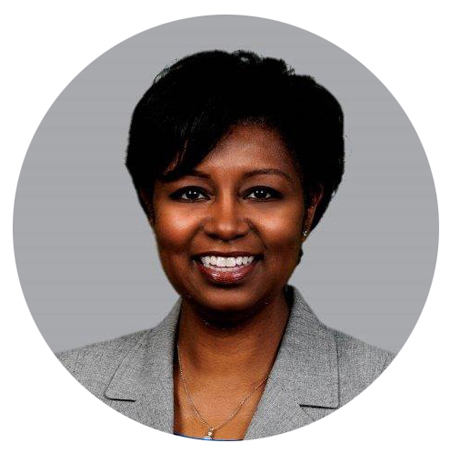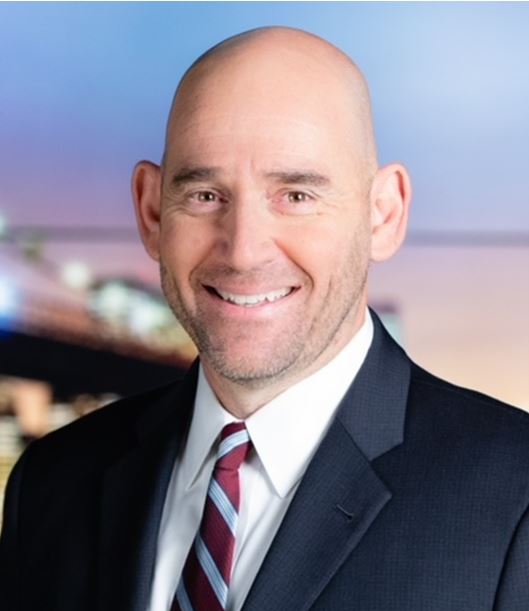In a new blog series, "In Practice", we look at how corporate law departments can apply the lessons they've learned in 2020
As guardians and enablers of the enterprise they serve, sophisticated general counsel and their law departments do more than dispense legal advice. They are business partners who consider what is legal, strategic, and ethical. The GCs and law departments who fared best even during the height of the pandemic were those who had begun their journey to becoming a “proactive, core advisor” to their organization.
In the latest article in our new series, In Practice, Rose Ors, CEO of ClientSmart, speaks with Tonya Robinson, Vice-Chair and General Counsel at KPMG LLP; and Carl Carande, U.S. Vice-Chair and Global Head of Advisory at KPMG International. The pair discussed how KPMG’s Office of General Counsel (OGC) has embarked on a transformational journey to support the business as a value-added partner. The exchange illustrates the power of building a trust-based partnership among legal and business leaders and shows how a visionary general counsel — one who’s part of the C-Suite — can help a company take smart risks to fuel its growth, innovation, and competitive advantage.
Rose Ors: Tonya, upon joining KPMG in 2017, how did you begin the law department’s transformation journey?
Tonya Robinson: In addition to getting to know the legal team and understanding its capabilities, I focused on building a trust-based relationship with our business colleagues. I began the journey by becoming a student of the firm — leaving my office and talking to as many people as were willing to engage. The process included understanding the firm’s strategic goals, learning how the various practices operate, and developing a perspective on their corresponding risk profiles. I then shared what I learned with the legal and firm leadership teams. The goal was to organize our department and develop our talent to help our KPMG business colleagues win in the market.
I’ve also strongly encouraged the legal leadership team — most of whom were also new to their KPMG leadership roles — to fan across the enterprise and build trust-based relationships with business leaders. The exercise is ongoing but is already reaping significant dividends.
For more, check out “How to become a strategic partner to the business”
Rose Ors: Tonya, how do you coach your leadership team to speak with one voice?
Tonya Robinson: Having the team speak as a unified voice is my obsession. We’ve spent much time as a team developing a cohesive vision, reaching alignment around our group’s strategic priorities, and breaking down silos. Every week, I talk with our core legal, regulatory, and compliance leadership team to provide support and identify opportunities to collaborate to advance KPMG’s business goals. We’re all marching behind a singular vision; and we collaborate across disciplines, specialties, and job roles to support the business seamlessly and with one voice. We’re getting there.
Rose Ors: Carl, I understand Tonya’s approach has been successful.
Carl Carande: Absolutely. Even though our Advisory group is our most complicated practice area, Tonya quickly learned our business and coached her team to do the same. I give Tonya a tremendous amount of credit for the depth of knowledge and the speed with which she elevated both her value and the law department’s value to the Advisory group.
Rose Ors: Can you share a specific example?
Carl Carande: In Tonya’s first meeting with our Advisory leadership team, she delivered a myth-busting, data-driven presentation about the risk exposure of our practice. The data revealed challenges that many of our competitors were navigating and empowered the business team to develop a winning strategy with those risks in mind. Here was a lawyer helping us with the proverbial ‘look around corners’.

Her presentation was a brilliant way of educating a group who firmly believed we had little to no risk. But it was not just the data that convinced us; it was Tonya’s professional and unflappable demeanor in fielding tough questions. As our prior chairman used to say, “Tonya has the best way to tell you where you’re an idiot without actually sounding condescending.”
Tonya’s presentation was a pivotal inflection point in beginning to get things right. The Advisory leadership left the meeting knowing that the more the OGC understood our strategy and how we run our business, the better business outcomes we’d achieve together. It was a game-changer.
Rose Ors: How do the law department and the Advisory group work together on a day-to-day basis?
Carl Carande: Tonya and her team have been on the front end of shaping the way we go to market. For example, the legal and government affairs teams work with us in the early development stage of new client offerings. They also assist us on complicated client acquisition efforts where the client seeks unique contract terms. Partnering early on with the law department has been critical in doing business at the accelerated speed at which we’ve been operating since the start of the pandemic. There have been times when we closed key deals in only three days.
Rose Ors: Tonya, how do you ensure your team stays close to the business?
Tonya Robinson: We work continuously with our internal clients to understand KPMG’s business direction — no small feat given the dynamism of the professional services sector. For example, our legal leadership team holds regular roundtables where KPMG business leaders join us to discuss where their practices stand now and where they are headed. In those meetings, we encourage our business colleagues to ask us questions and challenge us to do better. They tend not to hold back.

Additionally, sitting on KPMG’s management committee gives me a front-row seat to the business. I learn a great deal as I prepare for the meetings and listen to my fellow partners during these sessions. I also appreciate my colleagues’ openness and patience with my questions and viewpoints on managing aspects of the business.
Carl Carande: Our firm’s management committee values Tonya’s business questions and insights because she is both our lawyer and a highly informed business partner. She has earned our trust and respect.
Rose Ors: Tonya, Carl mentioned being swayed by the data you presented in your first meeting with the Advisory group. What are other ways you are using data to impact the business?
Tonya Robinson: We’re figuring out how to leverage our current data to deliver even higher quality and faster service to our internal clients. We’re also exploring innovative ways to measure and improve our operating effectiveness. This year, we’ve deployed financial and resource management tools more routinely to, among other things, help measure the productivity of our legal team and the cost-effectiveness of our outside counsel spend. These two metrics help us determine how best to staff our current workload and otherwise drive resources.
We’re also analyzing our data to determine how to we will fashion our post-pandemic operating model. We’re exploring a range of opportunities, including efforts to streamline our contracting processes to make it easier to do business with us, alternative service delivery models, and, where appropriate, the use of enabling technology. We aim to modernize our structure and systems to provide first-rate counsel that is intelligent and efficiently delivered.
That said, the quantitative data only tells part of the story — and perhaps not the most critical one. The more compelling part of the story is qualitative — our contributions as a valued, trusted advisor to the business.
We are currently surveying our internal clients to establish a baseline of how the OGC performs on the qualitative front. We plan to act on that feedback — a critical next step and powerful evidence of our intention to show up as a trusted advisor to our business colleagues.






